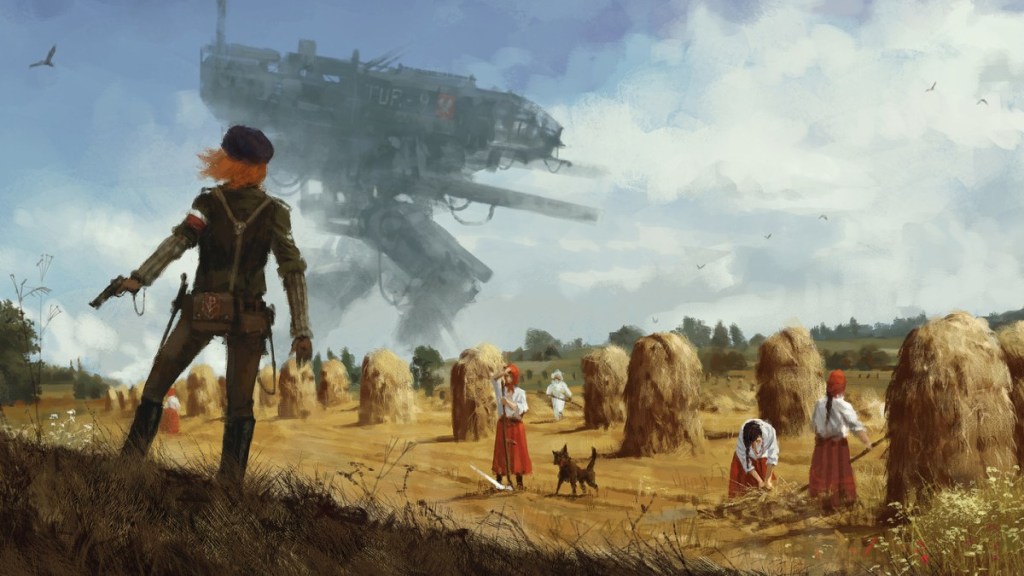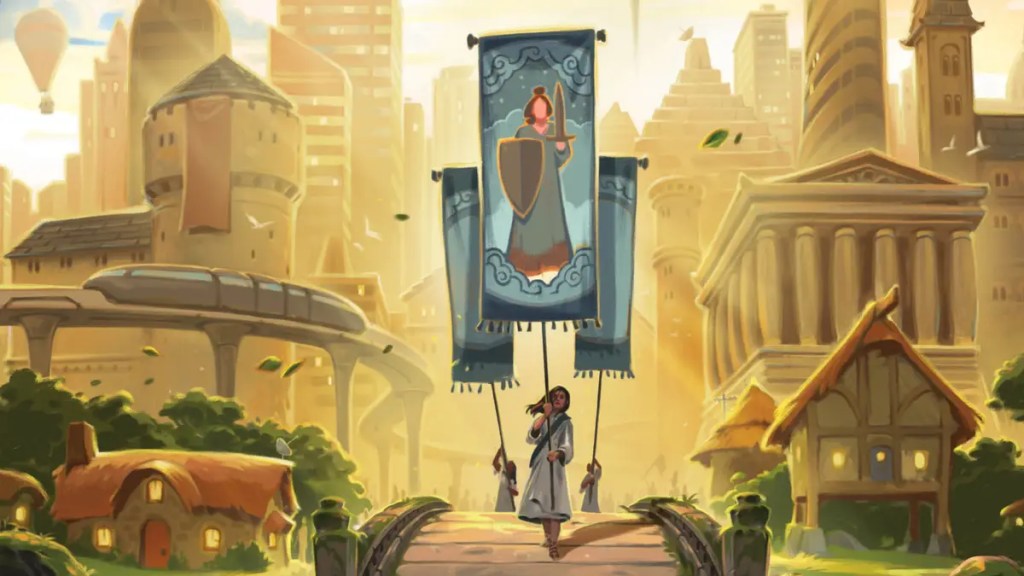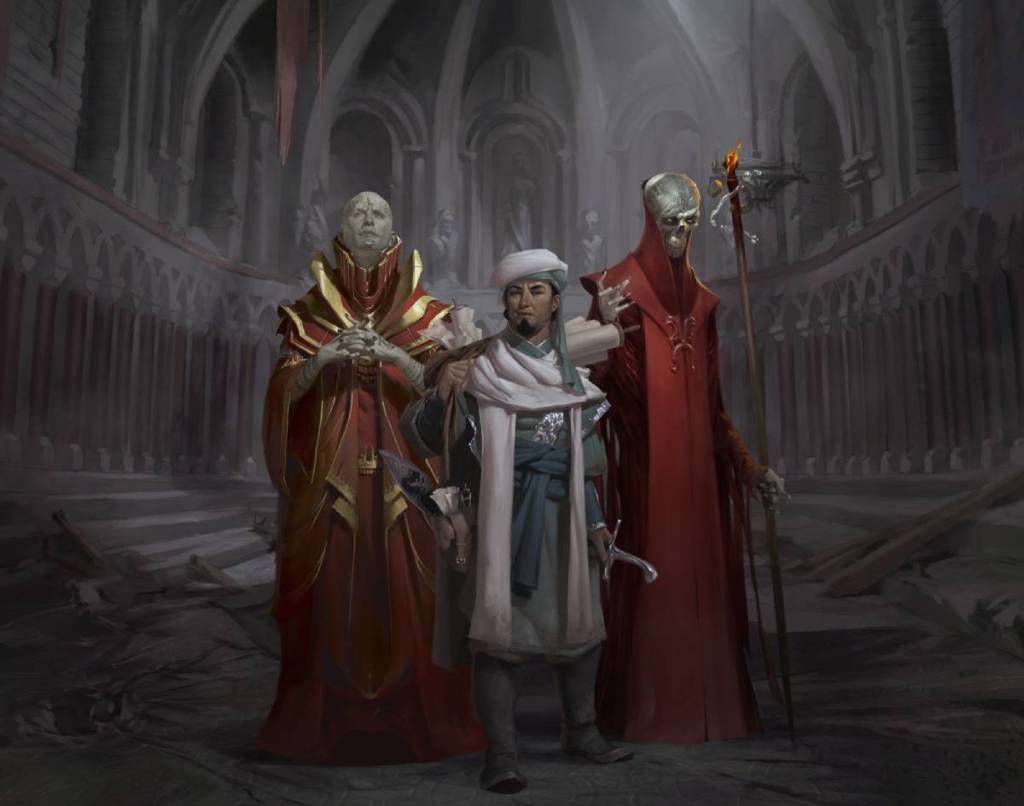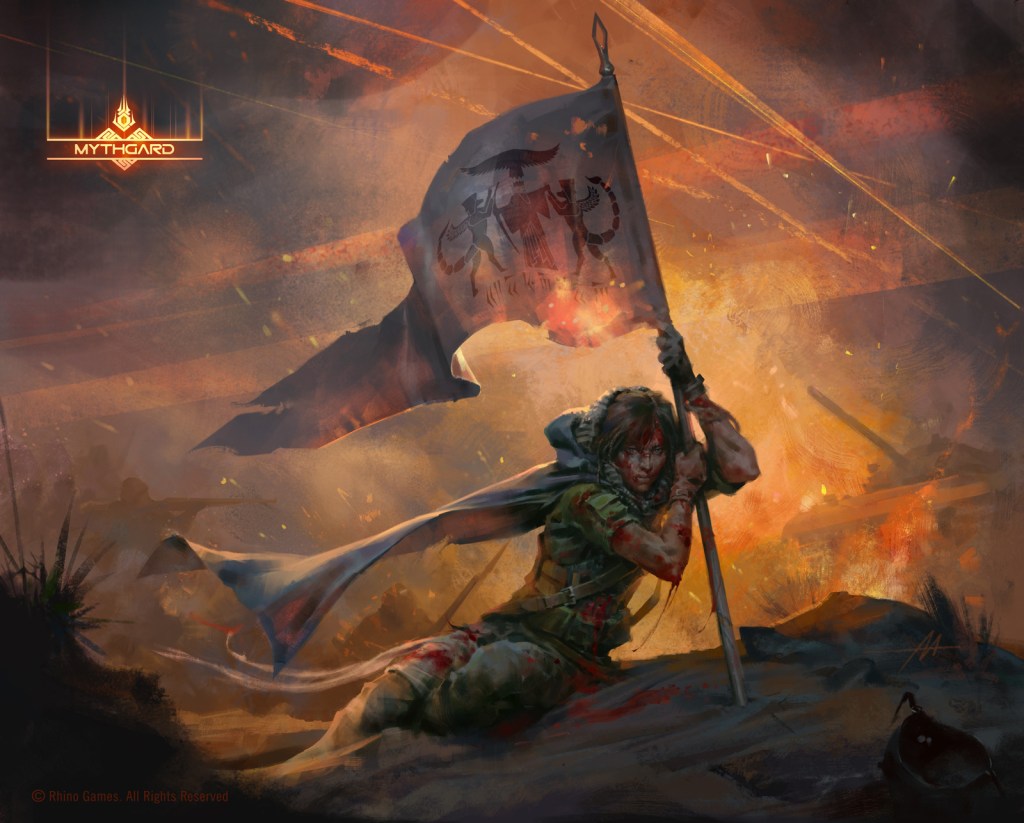Jamey Stegmaier of Stonemaier Games (his co-founder is Alan Stone) posted a video a couple of years ago in which he explained several lessons he’s learned in the course of designing and publishing many popular board games. Many of the lessons can be helpful to players of Dungeons & Dragons and other fantasy RPGs.
1. Play a Lot of Games
Naturally, it helps to play a lot of games when designing your own, but this applies to RPGs as well. At least reading thru other game systems can spur ideas for mechanics to port over as well as ideas for a campaign or adventure.
Some systems to a better job of establishing character background; some do a better job of suggesting how to put together adventures.
2. Minimize Frustration
His point here is that blocking other characters can be fun, but getting blocked is not fun. (This is a common complaint in 5e about counterspell.) The solution is to reduce blocking to something more like a complication. An obstacle is put in the way of the character that must be overcome before they can proceed with their plan. You can do this in your campaign in two ways.
Number 1, don’t stop the heroes from using the capabilities you’ve given them to solve their problems; that’s what those capabilities are for. If the PCs gain the ability to fly, put them in predicaments where flying is really useful.
Number 2, rather than blocking the heroes’ plan to simply march into the castle and talk to the earl, have their request be rejected, but it’s because the earl is planning his grand costume ball, which–with a little ingenuity–the heroes might be able to crash….
3. The First Game Matters
First impressions count for a lot, so ensure that your first adventure in the new campaign explores several elements the campaign will play with.
Instead of merely creating a slog thru a goblin lair, consider having an official lament how goblins are trying to establish themselves in the wilderness beyond the Western Wall. Why? Because they have been driven out of the hills by giants. This sets up giants as a future adventure.
And on their way to deal with the goblins, the heroes find the body of a foreign merchant. Will this create a political incident? On the way back, they spot the hilltop ruins of Carpathos Tower with its chimney smoking… even tho it’s supposed to be abandoned. Will the heroes look into its lore? Suddenly, the very first adventure introduces multiple factions of monsters, some inter-realm politics, and a spooky mystery.
4. The Value of Short-term Goals
This tip was partly inspired by Jamey’s playing of Lords of Waterdeep, so the inspiration has come full circle. His point is that the players should have both short-term and long-term goals, so that there are things they can work toward quickly while they also build a plan to win.
D&D often has the opposite problem: the short-term goal of completing the adventure (and, even shorter-term, the challenges within it) is obvious, but a long-term goal is not. So try to encourage players to develop a long-term goal like establishing a stronghold or ending the ongoing menace of a certain faction. But make this a background goal. If you make the long-term goal about defeating a certain villain, it will take up all the oxygen in the campaign and make it only about that one thing, which can become a slog if not a railroad.
Establishing a stronghold is a very old-school goal and was popular in the early days, because many players had come from wargames, so establishing a base for an army to defeat other armies was a natural step.

5. Balance Your Cards
What he means here is that the cards that provide capabilities in a board game should be useful all thru the game and not just at the beginning or end. This translates mostly to magic items in D&D.
As others have observed, there ways to make enchanted weapons in particular grow with the character. I’ve written about how legendary weapons can reveal their capabilities only after a few adventures or deeper attunement or when some deed is accomplished.
Or a weapon can simply have capabilities baked in from the beginning that are not useful in early adventures but become useful later. For example, a +1 axe, +3 vs reptiles, +5 vs dragons would be a weapon that becomes more useful as the character advances and fights greater monsters. A +1 mace, +2 vs ogres, +4 vs giants is similar.
6. Connect Mechanisms & Theme
This is the idea that the theme of the game should help explain the mechanics, and the mechanics of the game should reflect the theme. This makes the game more intuitive and easier to learn and play.
In the game Coup, the Contessa card blocks assassinations. How? Does she employ spies? Why is the Captain’s main function to steal coins? It would make more sense if they were “Clairvoyant” and “Thief”, but that kind of subverts the theme of courtly intrigue.
In D&D, the mechanics are fairly set. But if you decide that your campaign will focus on espionage, you should probably add a mechanism or two for forgery, disguise, and such. If you want to focus on domain play, you probably need to adopt a mechanism for acquiring a domain and engaging in mass combat.
7. Blind Playtesting is King
This doesn’t really apply to RPG campaigns. However, you should probably playtest any house rules you want to try or you may find some aspect is overpowered or exploitable. Just run a short one-shot designed to make use of the new rules.
That’s not blind, obviously, but you’re probably not planning on publishing your house rules. If you are planning on publishing your house rules, write them up and give them to another GM to playtest at their table, and take their feedback seriously.
8. Writing Rules is an Art Form
This again applies more to house rules you adopt than anything else. If the rule is difficult to explain or clumsy to carry out, it’s probably a bad rule. Simplify such things by eliminating steps or exceptions. It’s remarkable how often I come up with a cool mechanism and, looking back on it weeks later, realize it can and should be significantly streamlined.

9. Downtime is a Killer
This translates to the idea that focusing tightly on one player in combat or social encounters leaves the other players out of the fun. Find ways to make each hero character the focus of a moment; play to their strengths (give rangers something to track, for example) and let them have their time to shine. But ensure that you do it for each character in turn.
During combat, look for ways to involve characters who aren’t currently attacking or casting a spell, even if it’s just “You spot one going for a lever,” or “One of them is moving behind you.” Any way a player can plan ahead when it’s not their turn will give them something to do other than checking their smart phone.
10. Progress from the First Turn
This hearkens back to 4 by saying that players should always feel that their choices matter and that they are making some kind of progress toward a goal right from the beginning. In a board game, this often amounts to building an “engine” that will eventually produce the benefit you want.
RPGs actually do this rather well, with character abilities out of the gate and short-term goals of collecting treasure to buy things. But adding in some bit of lore gained in their very first adventure–one that illuminates some aspect of a long-term goal they can adopt–can add wonderful color.
If, for example, they know that Lord Heally is a great hero but find, on their second adventure, love letters between Heally and the Queen, they will suddenly wonder if some political machinations might be in their future.
11. It Comes Down to Fun
Look for ways to give the players the full experience of fun that they’re looking for. Try to figure out what each one plays the game for and tailor moments to their preferences. Some players love combat, some love puzzles, some love feeling like they’ve outwitted their opponents, and some love the give and take of social encounters.
And everyone loves dramatic reveals, betrayals, getting revenge, and solving ancient mysteries. Make sure that your adventures create the environment where those things can happen.





Leave a comment